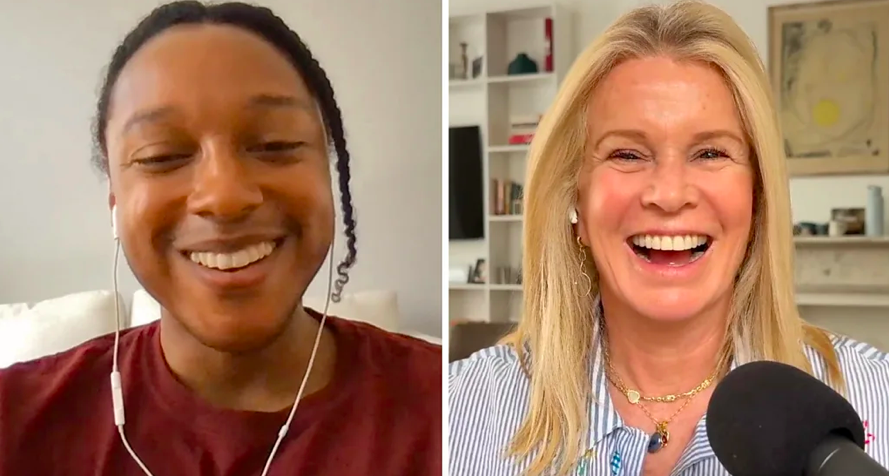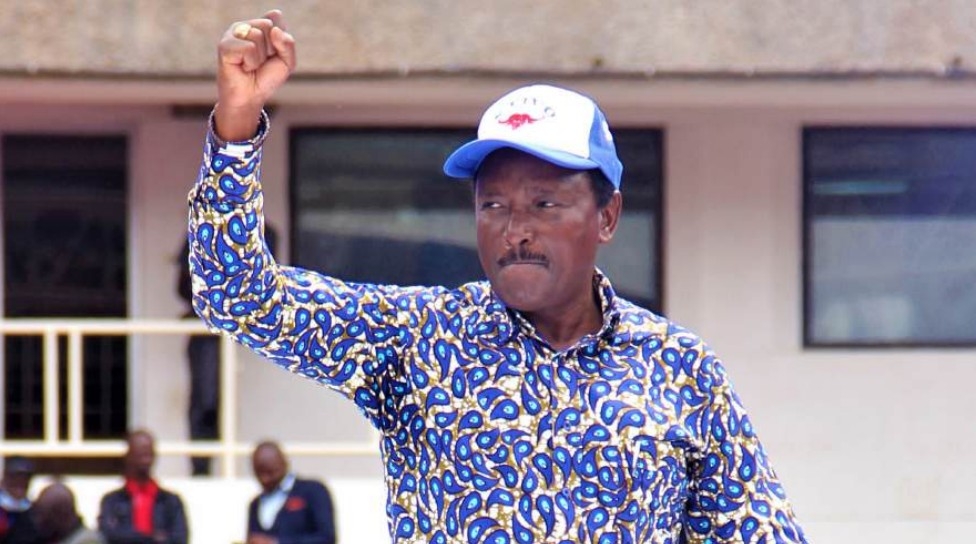
Two decades ago, a comedian's "big break" might have been getting a network TV sitcom. Today, many comics can find just as many viewers on YouTube or TikTok as they could have on television.
I would have thought that modern comedians wouldn't see much value in being on TV. But last week, I had a conversation with comedian Josh Johnson that made me think otherwise.
Johnson is one of the most successful comedians online today. Videos of his stand-up sets reacting to the news of the week regularly receive millions of views. But he is also a staple on Comedy Central's The Daily Show – and in the last few weeks, he was promoted to be one of the programme's co-hosts.
Johnson was adamant that legacy platforms like television still carry immense value for comedians. It was a really thought-provoking discussion – I'd encourage you to watch (or read) some more of it below.
Below is an excerpt from our conversation, which has been edited for length and clarity.
Katty Kay: I'm old enough to have grown up in a world where a spot on Johnny Carson or the pilot of a sitcom was the way that a comedian broke through. It seems like in the world of social media, it's just a very different trajectory for comedians. How has comedy changed in the last 30 years?
Josh Johnson: Now, it's sort of direct-to-consumer as opposed to before, where you had the TV networks that worked as the sort of buyer. Back then, it was a sort of one-size-fits-all approach. That's why so few people could break through and why breaking through to the masses was this instant success.
But there's only a "golden era" of each thing. There's only so long that something gets you something before everyone's trying to do it, and then it doesn't do what it used to. I look at trajectories and how to advance a career in the same way I look at stock tips. By the time I find out, it's too late!
KK: Yeah, if we're taking our stock tips from the person who thinks he should be giving us stock tips, we're bust.
JJ: I think it works the same way with comedy. By the time someone can give you a template of everything to do to get where you want to go, that thing is probably outdated.
I can't necessarily speak to what everyone's career was like in the Johnny Carson or Jay Leno era, but I imagine that audiences stuck with you because of the moment that they got swept up in when you were being created. I think that with the internet, the people that find you now are staying with you because of who you are.
KK: You've got this huge success on social media, but you also clearly see a value in being on TV and hosting The Daily Show(as you have just done). There must be something that TV is still bringing you as a comedian, even in this social media era that we live in.
JJ: There is something to be said for old systems continuing to still be good for you. There's the idea that being on TV sort of isn't what it used to be, right? I think that's just because with the internet, people have more options. But that doesn't mean these platforms that are either legacy names or have a very wide reach aren't incredibly influential into a person's career.
I think there's this idea that the independent creators and independent media will one day take over everything. I don't actually think that that will be what happens. I think that independents will gain more market share in the future, but I also think that you cannot understate what people get out of traditional TV, traditional movies, traditional news and everything. As much as we like to bash it or we think that they make bad decisions, I think that we still like the idea that there's a big thing a person could do.
KK: You've said in interviews that you don't think that social media has changed your relationship to the actual comedy. But I'm wondering about all the feedback from social media: the instant nature of what people can tell you they like or don't like or what's on their minds. Does that really not change the way you approach comedy?
JJ: I think it can influence you immensely if you are submersed in feedback. There are constructive amounts of feedback to engage with, but then there's you asking for trouble if you're fishing through all the nice things people say until a negative thing is said.
KK: Do you do that?
JJ: No, I really do my best not to. I do look at comments; I'm not going to act like I don't. And I do respond to comments sometimes.
But I think the best relationship with the audience is in person. A good meet and greet will let you know what needs to evolve about your set far more than putting that set out there and then reading all the comments. People are ready with opinions; you don't need to wait until they're online.
KK: Is social media both a blessing and a curse for comedy? Algorithms can expose you to a much wider audience, but does it also mean that that audience is potentially more fickle, where the algorithm drives people to you one day and to another comedian the next day? Is there something about the loyalty of an audience that is tested in this social media world?
JJ: Potentially, but I think that only happens if you get obsessed with numbers. I hold two things very top of mind when I think about any form of audience or influence.
One, nobody owes me anything. Just because you came to a show or you watched a video, it doesn't mean you have to watch the next one. I work as hard as I can to make it so you would want to, but you don't.
The second thing is that if you are focussed on the actual practice of what you're doing, you'll make better things to put online. At the end of the day, the most important thing is the show that I'm doing that night and the people that are there. Then, I put things up online for the people who didn't make it to the show. But whether one million people watch it or 1,000 people watch it, the fact that the people at the show had the best time possible, that's the most powerful and beneficial relationship, as far as the audience goes.
When we think about internet audiences being fickle, I think it's around things that are not setting up community. Community, both in person and online, is incredibly important, and it's something that people are seeking.
KK: Are there things about the internet that worry you in terms of yourself as a comedian?
JJ: I think that as long as I stick to the attitudes I have now and the things I'm doing now, I don't have too much to worry about.
At some point, you have to realise what is what is yours and what is not. When you are becoming known for the first time, you might trick yourself into thinking that it's just because it's you, when really, it's a moment. I think that what you do with that moment is very important. If you handle it well and carry yourself well, then you can establish yourself for a long time.
It's not as if the most popular comedians that we reference when we think about stand-up comedy were a flash in the pan. We think about the people who stayed. I think they stayed because of what was built around them and what and what they did with it.
I also know that people now are very worried about AI or about being replaced before they can even get started. But I think that being so afraid of a tool that it stops you from getting started is like wanting to build a table and just staring at a hammer and being like, "Well, the hammer can do it better than me!" and it's like, yes, but the hammer also needs you to do anything!
I think that there is this badge of honour around perseverance that we don't really talk about until somebody won the Academy Award or until they're at the top. There are plenty of people in the middle and a ton of people working their way up that have that perseverance that have already started. As a creator, you may not have the most money or the most support or maybe the first few things you make people don't like.
I don't think anyone's ever worse off for starting to do the thing that they want to do.













![[PHOTOS] Ruto dazzles in colourful maasai outfit](/_next/image?url=https%3A%2F%2Fcdn.radioafrica.digital%2Fimage%2F2025%2F11%2F8ccfbfe5-a43a-49b3-88f4-b99a41be4594.jpeg&w=3840&q=100)



